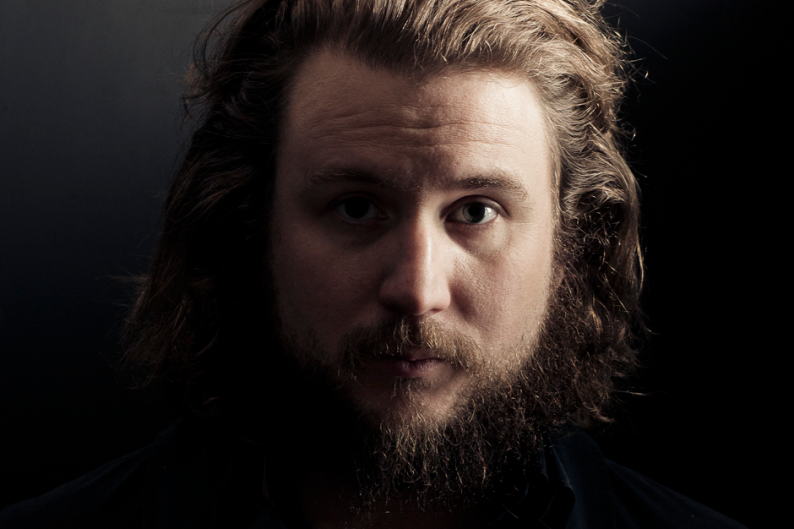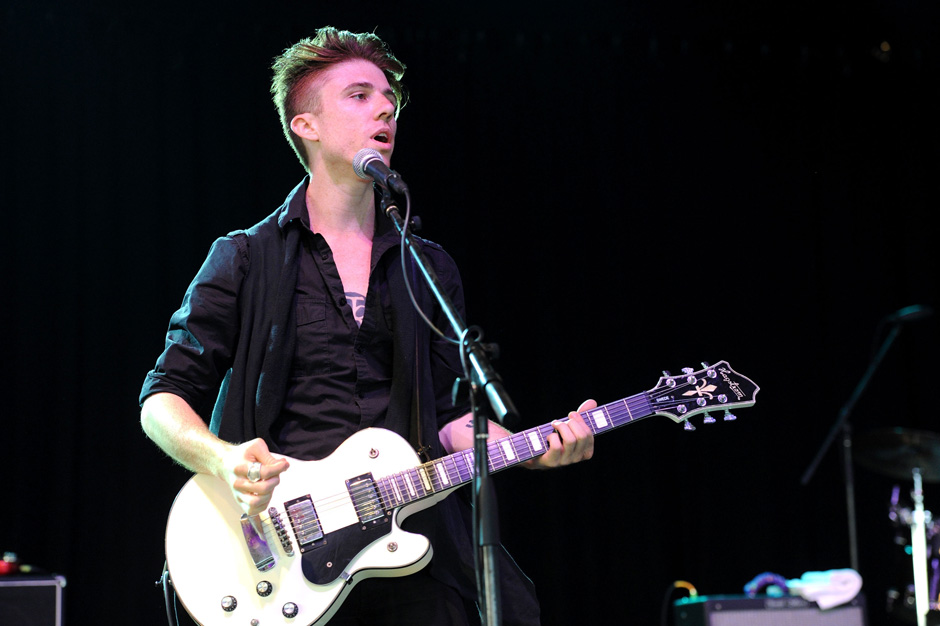I don’t remember the first time I saw Ben Curtis perform. It feels now like he was always around. That’s almost true: He was born in Lawton, Oklahoma, but moved to Dallas when he was in junior high. Not long after, when he was still a teenager, he began playing with UFOFU, the band he started with his brother Brandon and guitarist Joe Butcher in the late 1990s. I must have seen them, but I don’t remember, exactly. I didn’t know I’d have to.
Ben died on Sunday, at just 35, from lymphoblastic lymphoma, a cancer of the lymphatic system.
The first time I definitely remember seeing him play — and it was drums back then — was one of his first shows with alt-rock oddities Tripping Daisy, in front of the old Bill’s Records location, on the eve of the release of 1998’s Jesus Hits Like the Atom Bomb, a title that perfectly described how he played, a skinny kid almost standing behind his kit, wringing an impossible sound out of his wiry frame. It was the same surprising strength he brought to his battle with cancer, after he was diagnosed in early February. That’s why I expected him to beat it.
God, he was a great drummer: unfussy, the kind who held the spotlight instead of demanding it. Even when he played in A Quick One, a local for-fun tribute to the Who — even when he was doubling for one of the showiest drummers in rock’n’roll history — he remained in the background.

Also Read
Compact Discs: Sound of the Future
That’s what people outside of Dallas didn’t know. They knew him as an inventive guitar player during his time with the New York-based Secret Machines (from 2000 until he left the Led-Zep-and-the-Bunnymen outfit in 2007) and, then, with the dreamier, shoegaze-influenced School of Seven Bells — good enough to even influence the Edge, who credited Curtis for turning him onto a new effects pedal that led to the droning guitar sounds of U2’s 2009 album No Line on the Horizon. But Curtis was just as good as a drummer. He could play almost anything. I assumed he would live long enough so I’d get to hear him do that, that I’d one day hear about him playing, I don’t know, trumpet with a jazz band, and he’d immediately be so good at it that Roy Hargrove would be taking pointers.
We took him for granted when he was in Dallas, partly because his full talent wasn’t on display until he left in 2000. Brandon always would talk about what Ben could do, but I just thought he was being a good brother. Then Brandon sent me a CD-R of demos that would turn into the Secret Machines’ debut. I knew then just what we had missed out on, that one of the city’s best musicians had been hiding behind a drum kit all those years.
But I already knew the person we were missing. The last time I saw Ben play was at the Homegrown Fest in downtown Dallas with School of Seven Bells. I ran into him in the crowd before they played, and he was the same Ben Curtis I’d always known, the same Ben Curtis he’d always been: a sweetheart, kind and thoughtful, generous and humble. He didn’t have to be. People with his talent are afforded a certain leeway, the opportunity to be an asshole while everyone shrugs it off.
Ben never needed that free pass. He was a beautiful guy.




